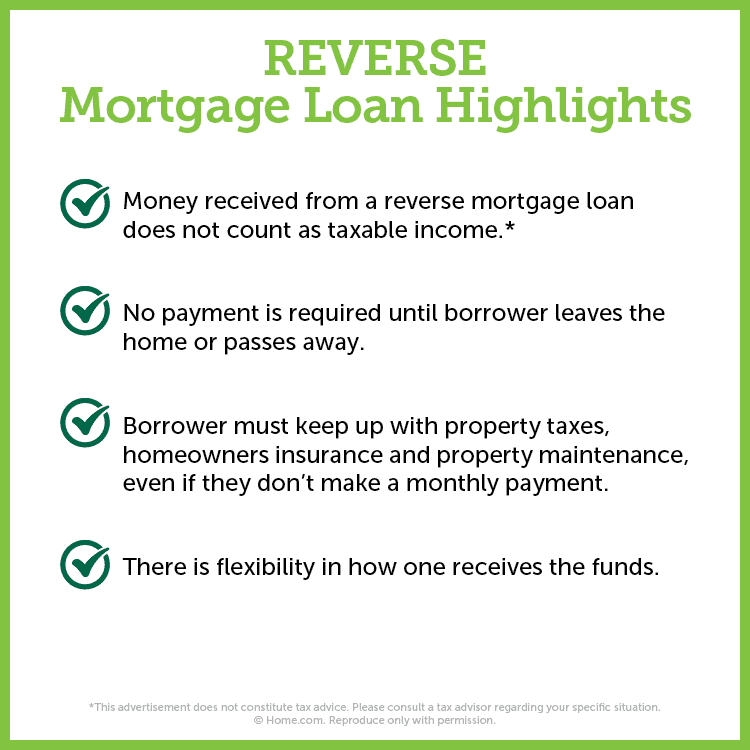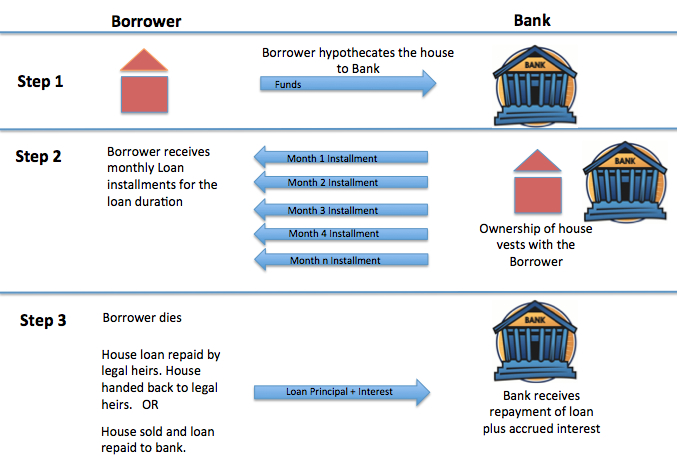Empower Your Retirement: The Smart Means to Purchase a Reverse Mortgage
As retired life techniques, numerous individuals look for efficient techniques to improve their economic self-reliance and well-being. Amongst these strategies, a reverse home mortgage becomes a viable alternative for property owners aged 62 and older, permitting them to use their home equity without the necessity of month-to-month payments. While this monetary device provides numerous benefits, consisting of increased capital and the prospective to cover essential costs, it is critical to understand the details of the application process and crucial factors to consider involved. The following actions might reveal exactly how you can make an educated decision that might dramatically impact your retirement years.
Comprehending Reverse Home Mortgages
Understanding reverse home mortgages can be essential for property owners looking for financial versatility in retired life. A reverse mortgage is a financial item that allows eligible homeowners, generally aged 62 and older, to convert a portion of their home equity into money. Unlike typical home loans, where borrowers make monthly payments to a lender, reverse home mortgages enable homeowners to get settlements or a round figure while maintaining ownership of their building.
The quantity offered through a reverse mortgage relies on numerous elements, including the homeowner's age, the home's worth, and present rates of interest. Importantly, the car loan does not need to be paid back up until the house owner markets the home, leaves, or passes away.
It is important for possible consumers to understand the ramifications of this economic item, including the effect on estate inheritance, tax considerations, and recurring duties associated to residential property maintenance, taxes, and insurance policy. Furthermore, counseling sessions with certified specialists are typically required to make certain that debtors fully understand the terms and conditions of the funding. Overall, a comprehensive understanding of reverse mortgages can encourage house owners to make educated decisions about their economic future in retirement.
Advantages of a Reverse Home Loan
A reverse home mortgage uses numerous engaging advantages for eligible house owners, specifically those in retirement. This monetary device permits seniors to transform a part of their home equity into money, giving important funds without the requirement for month-to-month home mortgage payments. The cash gotten can be made use of for various purposes, such as covering clinical expenditures, making home improvements, or supplementing retirement earnings, therefore improving total economic adaptability.
One significant advantage of a reverse home loan is that it does not require payment up until the home owner leaves, markets the home, or dies - purchase reverse mortgage. This attribute makes it possible for retirees to maintain their lifestyle and meet unanticipated prices without the worry of monthly settlements. Furthermore, the funds gotten are typically tax-free, enabling homeowners to use their cash without worry of tax ramifications
In addition, a reverse home loan can give assurance, recognizing that it can offer as an economic safeguard during challenging times. Home owners also preserve possession of their homes, ensuring they can continue residing in a familiar environment. Inevitably, a reverse home loan can be a calculated monetary source, encouraging retired people to manage their finances effectively while appreciating their gold years.
The Application Process
Navigating the application procedure for a reverse home loan is an important action for house owners considering this monetary option. The initial stage involves reviewing eligibility, which generally calls for the house owner to be at the very least 62 years of ages, own the building outright or have a low home mortgage balance, and inhabit the home as their main house.
When qualification is verified, homeowners need to undergo a therapy session with a HUD-approved counselor. This session makes sure that they fully recognize the implications of a discover this reverse home mortgage, including the duties included. purchase reverse mortgage. After finishing counseling, candidates can continue to gather needed documents, including evidence of revenue, assets, and the home's worth
The following step involves sending an application to a lender, who will certainly assess the monetary and home qualifications. An evaluation of the home will likewise be performed to determine its market worth. If approved, the loan provider will certainly offer funding terms, which should be examined meticulously.
Upon acceptance, the closing process follows, where final files are signed, and funds are disbursed. Recognizing each stage of this application procedure can significantly improve the house owner's self-confidence and decision-making regarding reverse home mortgages.

Trick Factors To Consider Prior To Investing In
Purchasing a reverse mortgage is a considerable financial decision that calls for mindful factor to consider of a number of essential factors. Initially, recognizing your qualification is important. Home owners need to be at least 62 years of ages, and the home should be their primary house. Reviewing your monetary needs and objectives is similarly essential; determine whether a reverse home mortgage lines up with your long-term strategies.

Furthermore, evaluate the effect on your present way of living. A reverse home mortgage can influence your qualification for particular federal government advantages, such as Medicaid. Seek expert support. Consulting with a financial advisor find out here now or a real estate counselor can provide important insights tailored to your individual situations. By completely examining these factors to consider, you can make a much more educated decision regarding whether a reverse home loan is the best financial strategy for your retirement.
Maximizing Your Funds
Once you have actually safeguarded a reverse home loan, efficiently managing the funds comes to be a concern. The flexibility of a reverse mortgage permits house owners to utilize the funds in numerous methods, but strategic preparation is vital to maximize their advantages.
One crucial approach is to develop a budget plan that outlines your regular monthly costs and economic goals. By identifying essential costs such as medical care, home tax obligations, and home maintenance, you can allocate funds appropriately to ensure long-lasting sustainability. Additionally, think about making use of a part of the funds for investments that can generate earnings or value in time, such as dividend-paying supplies or mutual funds.
Another crucial facet is to preserve an emergency fund. Reserving a get from your reverse home loan can help cover unforeseen prices, offering satisfaction and economic stability. Moreover, speak with a financial consultant to discover feasible tax implications and exactly how to incorporate reverse home mortgage funds into your overall retirement method.
Eventually, sensible administration of reverse home mortgage funds can boost you could try here your economic security, allowing you to enjoy your retirement years without the tension of monetary uncertainty. Cautious planning and informed decision-making will guarantee that your funds work efficiently for you.
Final Thought
Finally, a reverse home loan provides a practical monetary technique for seniors seeking to enhance their retired life experience. By transforming home equity right into obtainable funds, people can attend to necessary expenditures and safe and secure added funds without incurring monthly payments. Careful consideration of the associated implications and terms is crucial to make best use of advantages. Ultimately, leveraging this monetary tool can promote higher independence and boost general lifestyle throughout retired life years.
Understanding reverse home mortgages can be essential for home owners seeking monetary flexibility in retirement. A reverse home mortgage is a monetary item that allows qualified homeowners, normally aged 62 and older, to transform a portion of their home equity right into cash money. Unlike conventional home loans, where debtors make regular monthly repayments to a lending institution, reverse home mortgages enable property owners to receive payments or a lump amount while preserving ownership of their property.
In general, a complete understanding of reverse home mortgages can encourage home owners to make enlightened choices concerning their economic future in retired life.
Consult with a monetary consultant to explore possible tax obligation effects and just how to incorporate reverse home mortgage funds right into your general retirement strategy.